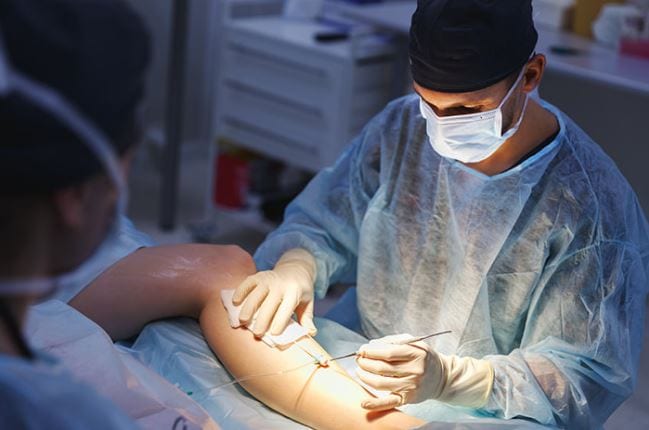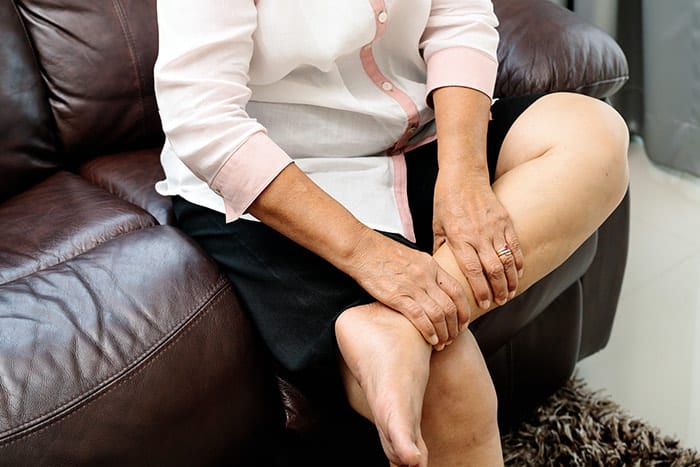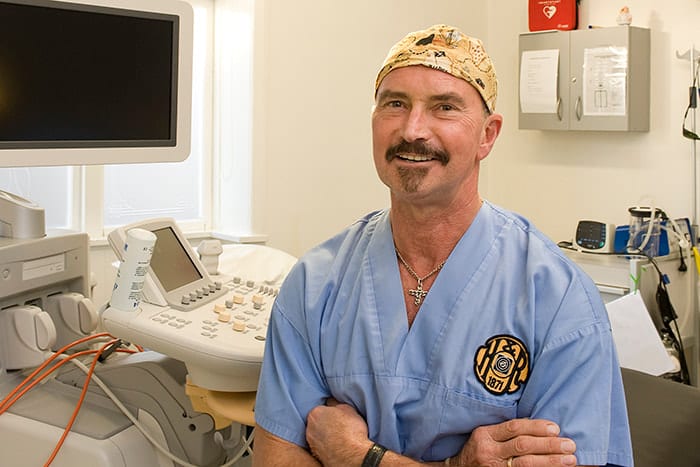With many assumptions, half-truths, and blatant lies out there about varicose veins, we thought it was time to set the record straight.
And who better than Dr Henryk Poczwa, one of the most experienced, professional, and respected varicose vein experts in New Zealand.
In this post, Dr Poczwa answers some of the most common questions about varicose veins, what causes them, and their treatment.

What are varicose veins?
Varicose Veins is a medical condition which, at its heart, is a circulatory problem, secondary to valve problems within the veins themselves.
Blood is not pumped up through the legs efficiently enough to fight the force of gravity because the broken valves act like open gates, so a little amount falls back down and begins to pool, causing the vein to bulge.
These veins can be on the inside of the leg where they are not noticeable, or, more commonly, on the outside, resulting in bulbous, knotted veins protruding from the skin.
What are the symptoms of varicose veins?
Varicose veins are not just a cosmetic issue, the condition does have considerable health problems associated with it.
The most common symptom of varicose veins is unfortunately pain, manifesting as an ache, heaviness, throbbing or tenderness. Numbness or a tingling sensation is also common, and the severity of the symptoms depends on how far the disease has progressed.
Restless Leg Syndrome, or RLS, is a condition that causes you to feel as if you need to constantly move your legs, and is usually most noticeable at night while lying in bed.
Swelling, throbbing and cramping are also all symptoms of the disease.

Isn’t it only women who get varicose veins?
No, absolutely not.
Statistically, while women are more likely to suffer from varicose veins, it’s not by much.
An estimated 45% of people with the disease are men, with around 30% of the population affected overall.
The truth is, anyone can develop varicose veins, at any time in their life, and varicose veins affect everyone.
Why have varicose veins treated?
While the disease is a serious medical issue, for many people the cosmetic factor of varicose veins is the main reason they have treatment.
Some people are too embarrassed to wear skirts or shorts, and swimming and sunbathing are no longer options. The damage varicose veins can do to a person’s confidence cannot be measured, but it does affect their everyday life.
The condition is a chronic one, meaning it will only get worse over time, so treatment isn’t something that should be put off.
What can I do about varicose veins?
Fortunately, there are plenty of options when it comes to the treatment of varicose veins.
The following procedures are all designed for the removal of varicose veins with the minimal amount of disruption and pain.
Endovenous Laser Ablation (EVLA)
EVLA is a simple day procedure, even though it can be used to treat the largest of varicose veins cases.
Using a laser, which converts light energy to heat energy, the treatment destroys the vein walls, causing the vein to collapse, stop working, and gradually disappear over several weeks or months.
Ultrasound Guided Sclerotherapy
Ultrasound Guided Sclerotherapy (UGS) involves injecting a chemical solution into the varicose vein, transforming it from soft and supple, to solid and fibrous. The body then gradually absorbs this tough, new tissue over the next few weeks and months.
Ultrasound Guided Sclerotherapy is a simple day procedure, and all normal activities can be resumed immediately, although compression stockings may need to be worn for a week or two.

The very best New Zealand has to offer
Dr Henryk Poczwa graduated from Otago Medical School in 1977 and worked as a GP in Upper Hutt during the 1980s.
He was a founding member of the College of Appearance Medicine, now called the New Zealand Society of Cosmetic Medicine (NZSCM) since its inception in the early 1990’s.
It was in 1998 that Dr Poczwa founded the Vein and Skin Clinic in Wellington, introducing the aforementioned EVLA procedure to New Zealand in 2002.
Since Dr Poczwa introduced EVLA to New Zealand, it has been adopted by numerous Phlebologists and Vascular Surgeons around the country, due to its low risk factors and high success rate.
We are one of the leading clinics in New Zealand for varicose vein treatment and have treated thousands of patients with the disease.
If you would like to know more about varicose vein treatment or how we can help, then please don’t hesitate to contact us today.
Our team of expert doctors, theatre nurses, cosmetic nurses, and friendly clerical staff are here to help you feel confident again, say goodbye to the symptoms of varicose veins, and become your old self once more!